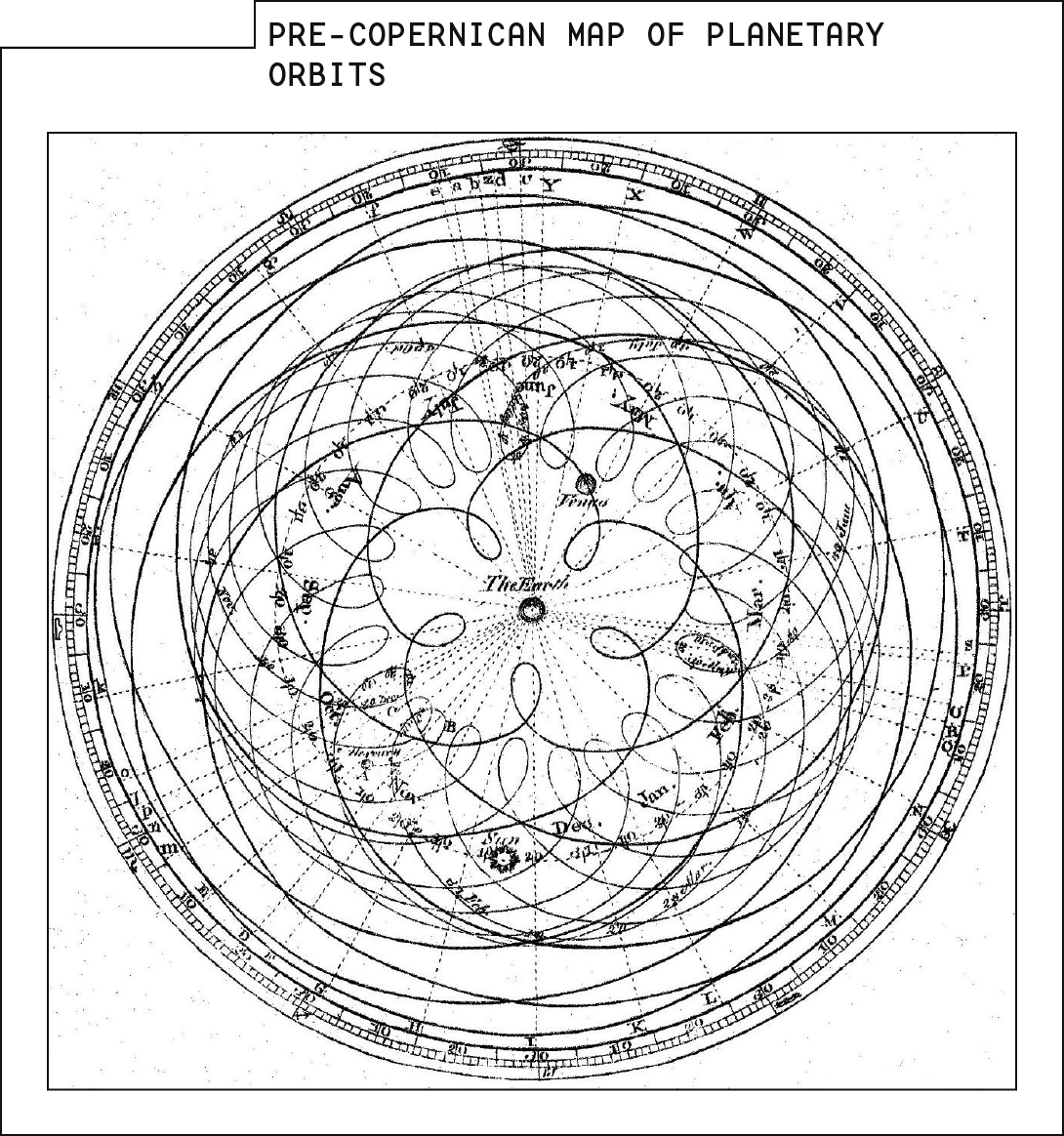Screens, Research and Hypertext
Powered by 🌱Roam GardenParadigm Shift
If you’ve studied the philosophy of science (who hasn’t?), you’re probably familiar with Thomas Kuhn’s The Structure of Scientific Revolutions.
Kuhn argues that normal science presumes a theoretical framework—a model that fits available data and accurately predicts experimental results. Most of science consists of poking at the edges of that framework to see whether it holds up under different conditions. When it doesn’t, the model gets tweaked to accommodate new data. As those tweaks start to pile up, the model gets a little creaky.
The classic example is Ptolemaic astronomy. (That’s the version where the Earth is the center of the solar system.) The newly-invented telescope helped astronomers realize that planets weren’t where Ptolemy predicted they’d be. So they started tweaking their model. Eventually they had something like this:

You know how this turns out. Copernicus realized that a model with the sun in the center of the solar system predicted the locations of planets without the need for a bunch of complicated tweaks. We know it today as the Copernican Revolution.
But it’s not called a revolution for nothing.
The two models are incommensurable. There is no series of steps that will get you from the Ptolemaic to the Copernican model. You have to make a sort of conceptual Gestalt shift, completely scrapping the old mental model in favor of a new one.
Indeed, one way of defining a paradigm shift just is that it's a Gestalt shift at the societal level.
Referenced in
The Internet Is a Mixtape
Dumping the document metaphor in favor of the song metaphor is a first step on the path to embracing our role as producers. It’s a paradigm shift, but one that we’ll need to take if we’re to make our content ready for the next chapter of the Internet.
A Critique of Conceptual Metaphor Theory
The social sciences are simply not yet scientific. They are, to borrow again from Thomas Kuhn, still an immature science, one that is pre-paradigm. In short, this means that in fields like anthropology, sociology, cognitive linguistics (and, yes, economics, too), there isn’t yet a theoretical view that adequately explains the full set of problems inherent to the field.